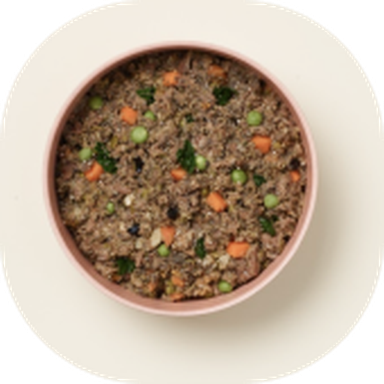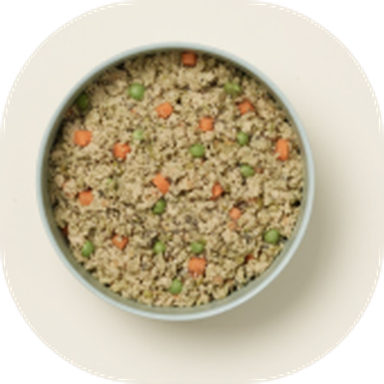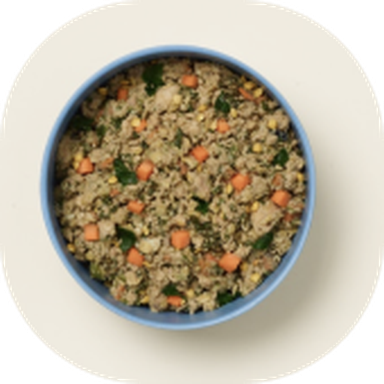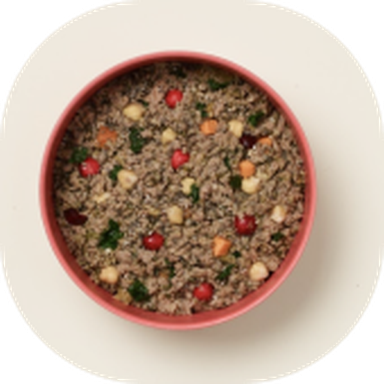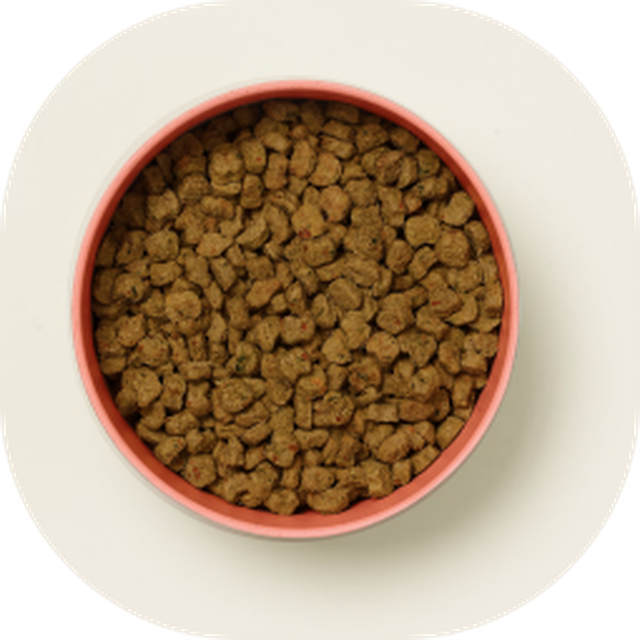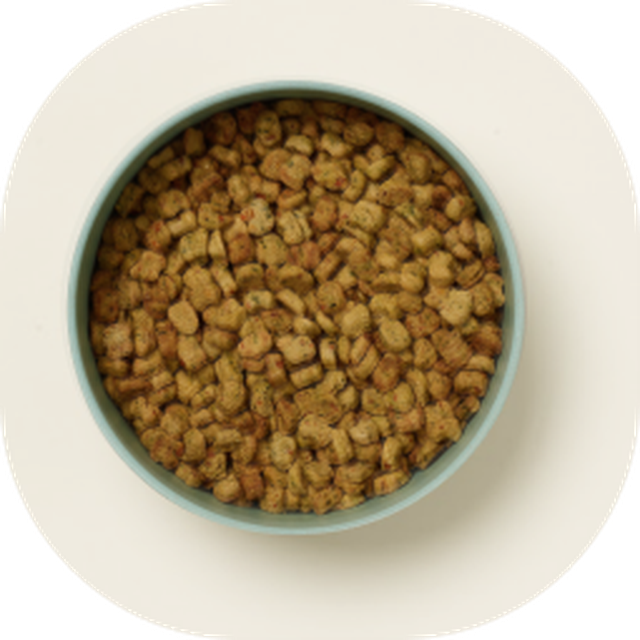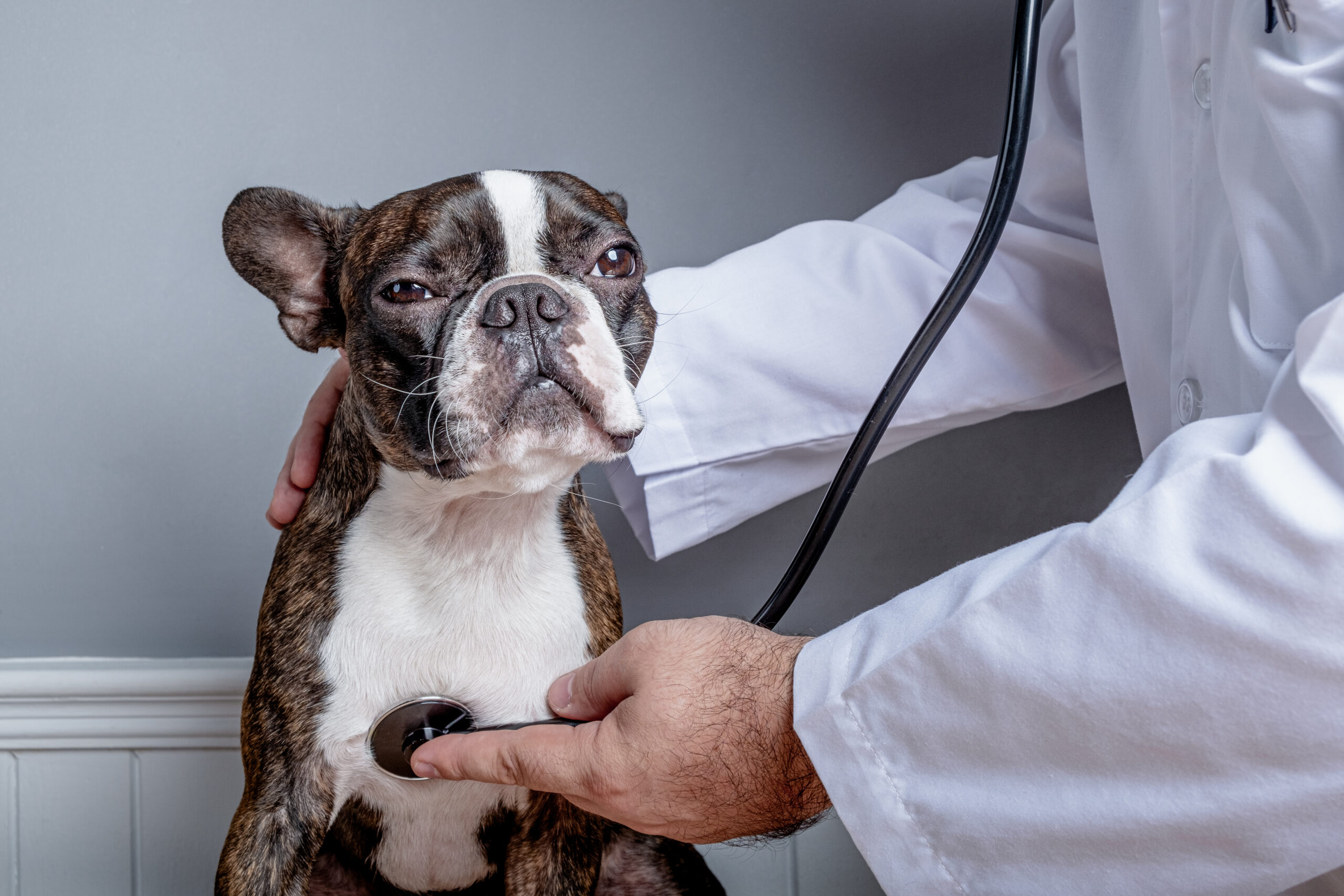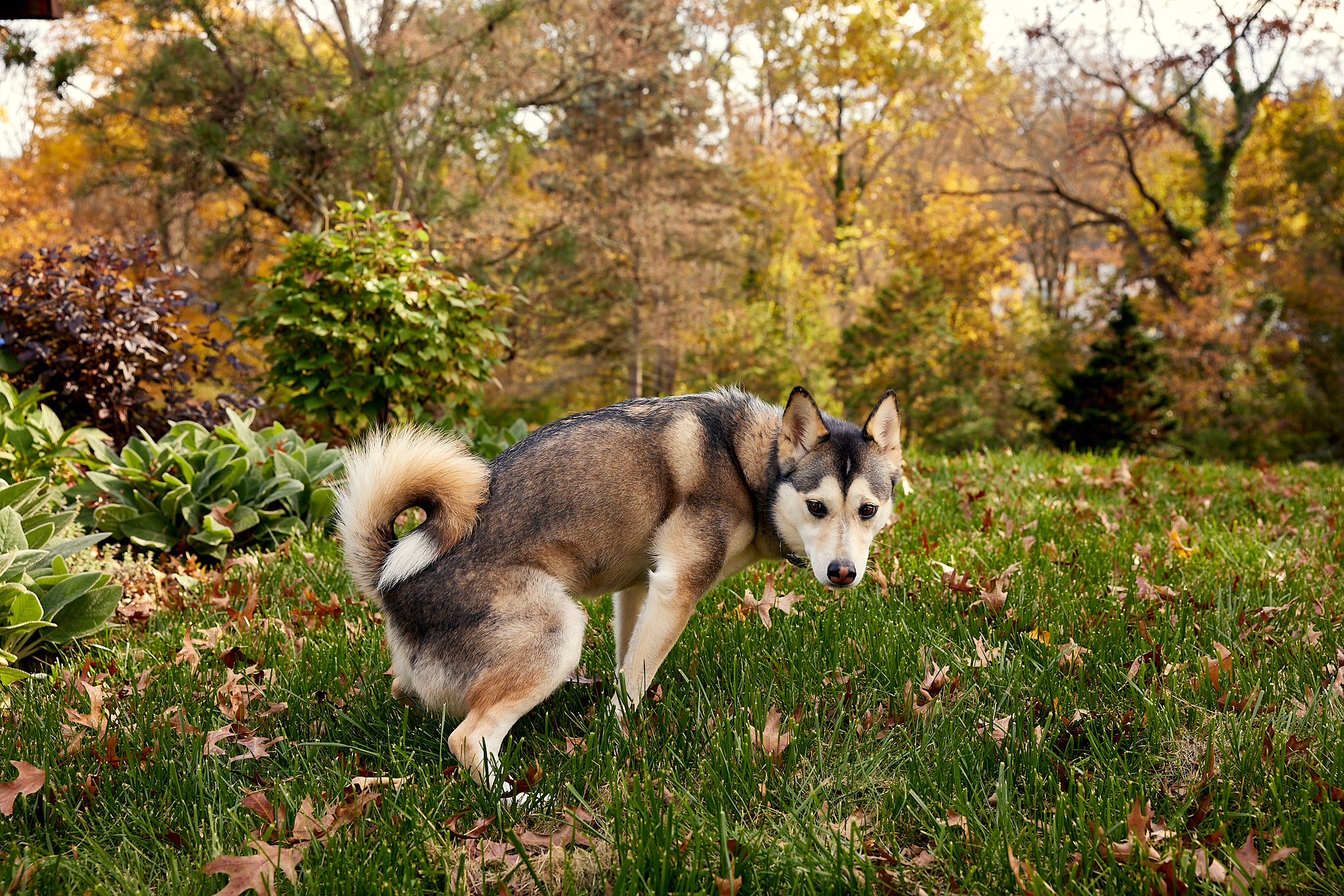Hey Ollie blog readers! We’re offering you an exclusive 60% OFF your starter box! Try now!
Dilated cardiomyopathy (DCM) has become a household topic among dog owners in recent years as connections continue to emerge between this degenerative heart condition and nutrition. Once limited to large-breed dogs, DCM diagnoses have been increasing for smaller breeds and for those previously believed to have no risk. To minimize a dog’s likelihood of DCM, all owners need to know about the condition’s signs, and their dog’s risk for developing the disease.
What Is Dilated Cardiomyopathy in Dogs?
A dog with DCM has dilated (i.e., enlarged) heart chambers. Their muscular heart walls progressively thin and weaken, specifically the lower chambers (i.e., ventricles), which are naturally thick. These ventricles are responsible for strong contractions that force blood to the lungs and throughout the body.
As the heart muscle weakens, the increased demand on the tissues causes the organ to stretch, which further decreases its contraction ability. When the heart fails to keep up with normal blood flow, congestive heart failure develops, causing fluid to leak from vessels into the lungs.
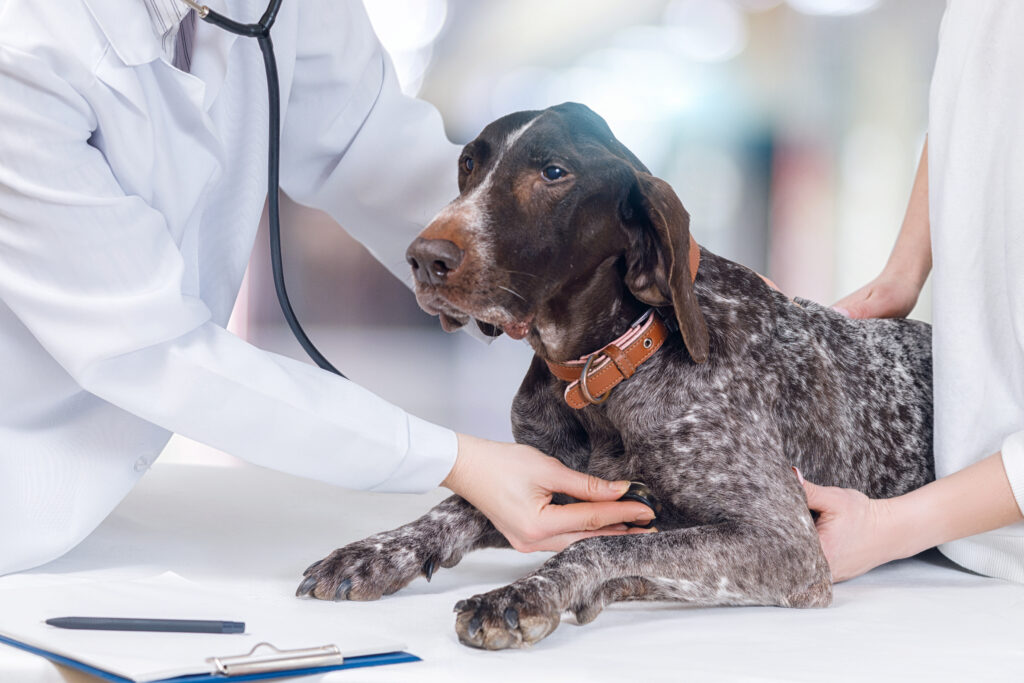
What are Dilated Cardiomyopathy risk factors?
DCM is the most common heart failure cause in large- and giant-breed dogs. Highly susceptible breeds include boxers, Doberman pinschers, Irish wolfhounds, Great Danes, and Saint Bernards. Small and medium breeds, including the American cocker spaniel, English springer spaniel, and Portuguese water dog, are also predisposed to DCM. However, DCM can also occur in nontraditional breeds, especially when a nutritional deficiency exists. Although DCM’s definitive cause remains elusive, experts have determined several clear links including:
- Genetics — DCM can be inherited. Dogs should be screened for genetic (i.e., hereditary) DCM markers before being introduced to a breeding program.
- Nutrition — Nutritional deficiencies, including taurine, an amino sulfonic acid, and L-carnitine, an amino acid derivative, have been linked to nonhereditary DCM. Unbalanced, improperly designed, or homemade diets that do not adhere to the Association of American Feed Control Officials (AAFCO) standards often have these deficiencies. Various universities and the U.S. Food and Drug Administration (FDA) continue to investigate the potential connection between DCM and grain-free dog foods.
- Infectious disease — Viruses, such as parvovirus, can weaken heart tissue, resulting in nonhereditary DCM. Fortunately, infectious diseases rarely cause DCM.
What are Dilated Cardiomyopathy Signs in Dogs?
Because DCM gradually worsens over time, a dog may not exhibit signs until their heart muscle is significantly compromised, at which point they may seem sudden and severe. Depending on whether a dog’s diagnosis is in the disease’s early or late stage, their signs may include:
- Rapid breathing at rest
- Weak pulse
- Weakness or lethargy
- Restlessness
- Decreased appetite
- Labored breathing
- Reluctance to exercise or low stamina
- Blue or grey gums
- Distended or swollen abdomen
- Collapse
Hereditary DCM typically occurs in adult dogs who are older than 10 years of age. Males more commonly develop the disease than females. However, a dog with nonhereditary DCM may exhibit signs at a much younger age.
How is Dilated Cardiomyopathy Diagnosed?
Dilated cardiomyopathy may be diagnosed on a routine screening test or as a result of a dog having exhibited illness signs. Whether your dog’s disease is subclinical (i.e., unseen) or affecting their overall health, your veterinarian will perform tests to confirm the diagnosis and stage your pooch’s condition. In addition to a full review of your dog’s history, including whether they’re eating a grain-free or homemade diet, and a physical examination, the most common DCM diagnostic screening includes X-ray and ultrasound (i.e., echocardiogram) imaging to view the heart’s structure and function, electrocardiography (ECG) to map the heart’s electrical activity, blood work, and a cardiac biomarker screening test to detect genetic DCM indicators.
Because nonhereditary DCM is often linked to nutritional deficiencies, you must be upfront with your veterinarian about any boutique, exotic, or grain-free (BEG) foods or treats you are feeding your pup. Although DCM’s primary cause is still unknown, recent FDA literature confirms that diets containing high quantities of non-soy legumes and pulses (e.g., peas, lentils, legumes) are most commonly implicated with dietary-induced DCM.
Treatment and management of dilated cardiomyopathy
DCM is an incurable and degenerative condition. However, early detection and treatment can potentially slow the disease’s progression. In some cases, dietary-induced DCM may be reversible by providing your dog with a veterinarian-supervised diet change and supportive care.
DCM management focuses on improving a dog’s quality of life by easing the strain on their heart. Various medications (e.g., angiotensin-converting-enzyme inhibitors [ACE] inhibitors, diuretics, antiarrhythmics) are prescribed to strengthen the heart’s pumping ability, improve blood flow, reduce lung congestion, and correct abnormal rhythms. A dog with dietary-induced DCM will also receive corrective supplementation for taurine or L-carnitine deficiencies and may be placed on a corrective pulse-free diet.
In addition to veterinary-supervised treatment, you can help your pup’s heart by restricting their physical activity to low-impact exercises (e.g., walking or swimming), lowering their stress, and helping them avoid weight gain. Regular veterinary follow-up appointments are necessary to monitor your pup’s heart and ensure their treatment plan is controlling their signs effectively. Your veterinarian will make occasional medication or therapeutic adjustments to help ensure your dog stays comfortable. Finally, remember that food can be powerful medicine, especially if your dog is diagnosed with DCM. Fresh food diets, such as Ollie, contain highly digestible heart-friendly nutrients, including anti-inflammatory omega-3 fatty acids, antioxidant-rich green leafy vegetables, hearty whole grains, and lean proteins such as chicken and turkey.
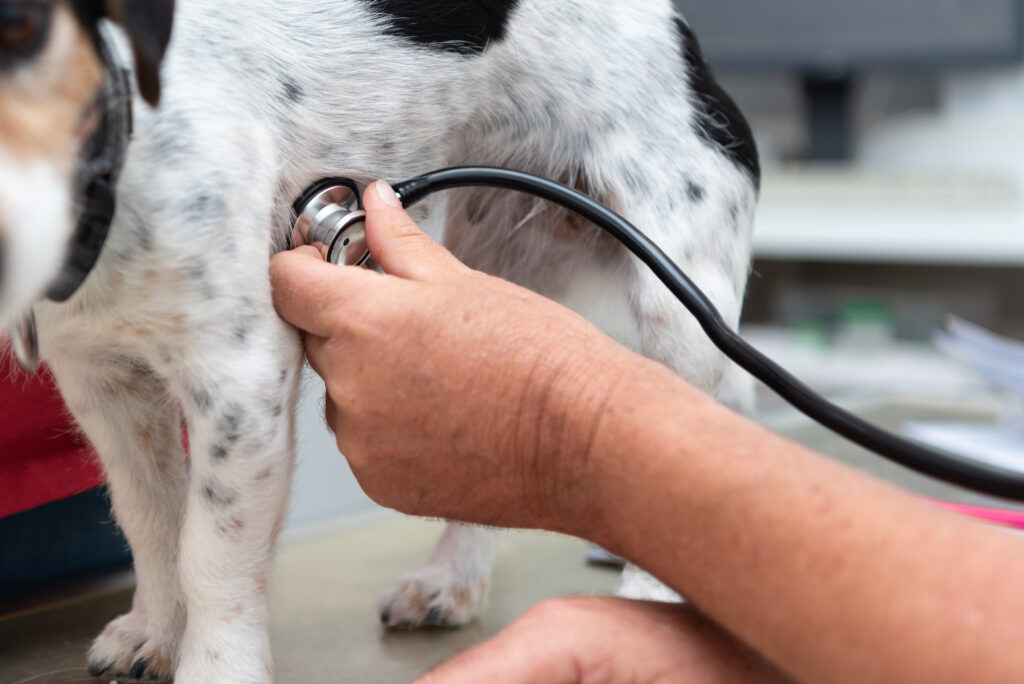
Dilated cardiomyopathy complications and prognosis
DCM’s heartbreaking nature is its subtle and sneaky onset, which causes many owners to overlook their dog’s signs until the condition is severe, irreversible, and sometimes fatal. To reduce your dog’s risk for additional heart-related emergencies, your veterinarian must closely monitor and manage DCM-related complications. Once the heart is unable to keep up with the body’s demand for oxygenated blood, the following complications can develop suddenly:
- Congestive heart failure (CHF) — The heart’s weakened pump prevents the organ from filling appropriately, causing fluid to leak around the heart’s vessels and accumulate in the chest and abdomen. The increased pressure in these areas cause dogs with CHF to experience breathing difficulties.
- Arrhythmias and cardiac arrest — Heart muscle damage alters the electrical signaling that controls the life-sustaining cardiac rhythm. An abnormal rhythm (i.e., arrhythmia) can cause severe weakness, collapse, or sudden death.
- Thromboembolism — Altered or congested blood flow in the large vessels can lead to blood clot formation. If the clot breaks free, it may become lodged in the vessel or heart, further disrupting blood flow and leading to stroke, cardiac emergency, or sudden death.
Your dog’s DCM prognosis can vary significantly depending on their condition’s stage at diagnosis. A dog whose early-stage DCM is well-managed can live for years with the disease, as long as their owner maintains diligent follow-up care. Sadly, the prognosis for severely affected dogs is limited, and treatment tends to focus on comfort rather than on slowing the disease’s progression or extending the pooch’s life.
Dilated Cardiomyopathy Prevention and Breed-Specific Considerations
Fortunately, some hope is available for dogs diagnosed with DCM. Because the condition has several known contributing factors, prevention is a multistep approach that includes:
- Screening breeding dogs for DCM — Breeders of at-risk dogs should test each dog in their kennel before using them in any breeding program. Dogs who carry DCM biomarkers should not be bred together.
- Negative testing for at-risk breeds — Reputable breeders should provide potential puppy buyers proof of normal cardiac testing for both parents.
- Genetic testing and screening programs — Your veterinarian can recommend genetic testing or annual cardiac screening tests to assess your dog’s likelihood for developing DCM or to detect early disease.
Fresh whole-food diets provide maximum nutrition by eliminating unnecessary and potentially proinflammatory fillers. The food you feed your dog should feature carefully selected meats, oils, produce, and grains to create concentrated, highly digestible nutrition that your pup and their heart will love.
Dilated cardiomyopathy takeaways for every dog owner
DCM’s progressive, degenerative nature is heartbreaking, and the disease’s many unknown causes make the condition more concerning. Do the best for your dog’s health and focus on the following:
- Stay up-to-date on veterinary care — Annual or biannual wellness visits and screening tests for at-risk dogs help ensure early diagnosis and intervention.
- Feed a heart-healthy diet — Until more conclusive evidence is available, avoid feeding your dog pulse-heavy foods such as grain-free and BEG diets. Talk to your veterinarian about safe alternatives such as Ollie’s fresh food recipes.
- Stay informed about DCM — The FDA Animal Literacy page and the Tufts University Clinical Nutrition Service are excellent resources for sound scientific information about DCM and research updates.
Your dog loves you with every beat of their heart. Ensure that steady rhythm stays strong by filling your pup’s life and bowl with healthy foods.
Sources:
- https://www.vet.cornell.edu/hospitals/companion-animal-hospital/cardiology/canine-dilated-cardiomyopathy-dcm
- https://www.petmd.com/dog/conditions/cardiovascular/enlarged-heart-dilated-cardiomyopathy-dogs
- https://www.akc.org/expert-advice/health/valvular-disease-in-small-breed-dogs/
- https://www.merckvetmanual.com/circulatory-system/cardiomyopathy-in-dogs-and-cats/dilated-cardiomyopathy-in-dogs-and-cats
- https://www.fda.gov/animal-veterinary/animal-health-literacy/questions-answers-fdas-work-potential-cauhttps://vetnutrition.tufts.edu/2021/09/diet-associated-dcm-research-update/
- https://vetnutrition.tufts.edu/2018/06/a-broken-heart-risk-of-heart-disease-in-boutique-or-grain-free-diets-and-exotic-ingredients/
Tagged As:

The nutrition your dog needs,
the food they want.

Enjoying our articles? Subscribe our Newsletters and get new articles directly to your inbox
You might also like
26 April 2024
4 MINS READ
How Often Should I Take My Dog To The Vet?
Routine veterinary care is important for your dog’s overall health—but how often should your pup visit the vet? We answer this question and outline common health signs that warrant a veterinary…
by Ollie Pets
28 February 2024
6 MINS READ
Why Do Dogs Eat Poop & How to Stop It
Does your dog partake in poop? We get to the bottom of this unusual behavior, including its medical and behavioral causes, and how to address it.
by Ollie Pets
30 August 2023
6 MINS READ
Dog Diarrhea: How to Prevent and Resolve
Dog diarrhea is distressing for pups and their owners. Understanding common diarrhea causes can help you respond quickly and effectively to your pup’s intestinal issues.
